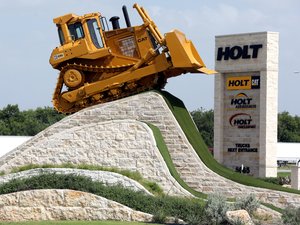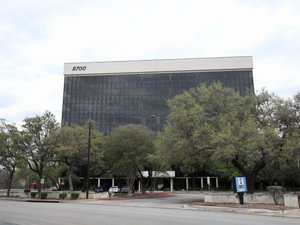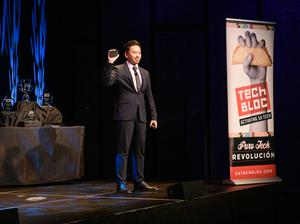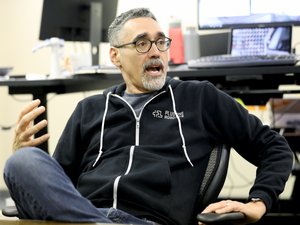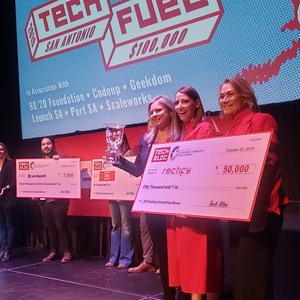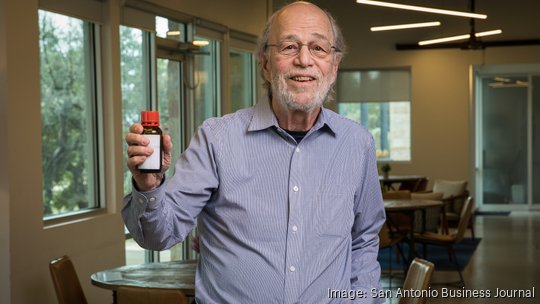
Lithium-ion batteries power the modern world. They are used in a multitude of consumer products, including cell phones, e-cigarettes, computers and electric vehicles.
They're also well known for their problems. From 2006 to 2023, The Federal Aviation Administration reported 433 air incidents involving lithium-ion batteries, with 68 of those incidents occurring in 2022.
And in 2016, Samsung recalled its Galaxy Note 7 smartphones after receiving multiple consumer reports of battery-related overheating.
Scientists have been working on the lithium-ion battery problem for years, and for years, research has been stalled by a lack of funding.
But one local company, aided by a former advisory scientist at Idaho National Laboratory (INL), thinks it has the solution, and is preparing to take it to market.
"No one has an inorganic liquid, or an inorganic liquid solvent for lithium-ion batteries," said Jay Fraser, CEO of New Dominion Enterprises Inc. (NDE), a San Antonio-based deep technology company. "There are other liquids that are inorganic but do not have the same ability to generate power or generate electricity. Ours does."
Fraser told the San Antonio Business Journal that AFWERX, the innovation arm of the Department of the Air Force powered by the Air Force Research Laboratory, has placed its confidence in NDE in the form of two Direct to Phase Two contracts, totaling $2.2 million over the next 21 months.
"We never expected to get two contracts," Fraser said. "We were hoping to get one. We would have been happy with one."
Awarded on Feb. 8, the contracts are for Improved Battery Packs for Tactical Dismount Radios and Improved Conformable Wearable Batteries (CWBs).
Previously, NDE secured Phase One and Two contracts from AFWERX in 2021 for $800,000. That award, combined with the latest funding round, brings New Dominion's total non-dilutive funding to $3 million.
Liquid electrolytes are what facilitate the exchange of positive lithium ions between the anode and cathode in a battery, according to the U.S. Department of Energy.
Fraser said the conventional liquid electrolytes are carbonate-based, which means they are flammable, lose power, and degrade over time. Inorganic electrolytes, on the other hand, make the lithium-ion battery more durable, longer lasting and safer.
Fraser pointed out that NDE's inorganic electrolyte solution has a wide range of applications for the U.S. Air Force.
"These lithium-ion batteries are used to power night vision goggles, they're used to power sensors, almost anything that the military uses — not just communications devices, but equipment that the soldier[s] or the airmen carry," Fraser said. "Think of it this way: A typical airman, Air Force ground troop, could carry as much as 150 pounds of equipment."
"Every battery that is used to power a radio weighs three pounds," he added. "So, if they have to carry the original plus two spares, that's eight to nine pounds worth of batteries. If we could make that battery last longer, we might eliminate one of those batteries. And any pound that they can not carry is something that they want."
Fraser said the wearable battery NDE is working on with the second contract is flexible and can conform to the shape of the body, eliminating unnecessary bulk.
Essentially, "Everything is focused on making the ground troops more maneuverable," Fraser said. "And making the power supplies longer-lasting and safer."
Not only does New Dominion have AFWERX behind it, but Fraser said eight commercial companies are also testing New Dominion's material in their batteries.
While Fraser declined to name the specific companies, he told the Business Journal that one company NDE is working with is developing batteries for Formula E electric race cars.
"Turns out that a lot of large companies are paying attention to us now," Fraser said.
The primary usage for NDE's technology will be commercial, according to the company's website. And while Fraser acknowledged it will take time to be qualified by the battery companies — NDE's core customers — he is confident 2023 is going to be a "breakout year."
"Up until now, we've pretty much been in stealth mode," Fraser said. "Very few people know about us."
New Dominion Enterprises evolved from a technology developed out of INL, according to Fraser.
Mason Harrup, Ph.D., was a principal scientist at INL who "made [it] his life's work to tackle the problems that are pretty apparent when it comes to lithium-ion batteries," Fraser said.
Using his background in inorganic chemistry, Harrup was able to develop a novel, inorganic solvent for lithium-ion batteries through a series of funded programs.
Fraser met Harrup when his previous company secured a $2.5 million contract with the Office of Naval Research "that pretty much no one in town paid attention to." When Harrup left the lab, he asked Fraser to work with him on the lithium-battery technology he had been developing for the past 17 years.
"At the time, I had nothing else better to do. So I said, 'OK, let's go do that,'" Fraser said.
Harrup is now the chief scientist at NDE. In 2019, NDE ended up with the license to the technology and began manufacturing the material in five kilogram batches at a pilot manufacturer in North Carolina.
Fraser said NDE has entered conversations with two U.S. companies regarding full-scale manufacturing and is looking to raise $3 million in equity to cover scaling costs.
"I'm open to talking to investors who are interested and willing to talk to me," Fraser said. "Up until now, I haven't been successful in finding those people. Now, maybe the story is getting better."
"New energy is a hot topic these days around the world, whether it's for military weapons and military applications, or whether it's for commercial applications," said NDE board member and retired Air Force veteran Chris Cook. "We all use batteries — in flashlights, in radios, in generators, backup power sources, complementary power sources for new energy, solar and wind, in vehicles large and small ... Everybody wants some of this stuff, and I think it's gonna be huge."
New Dominion Enterprises Inc. is a Delaware "C" corporation, according to Crunchbase. The company has five employees and is located at 18911 Hardy Oak Blvd., Suite 209, in San Antonio.
